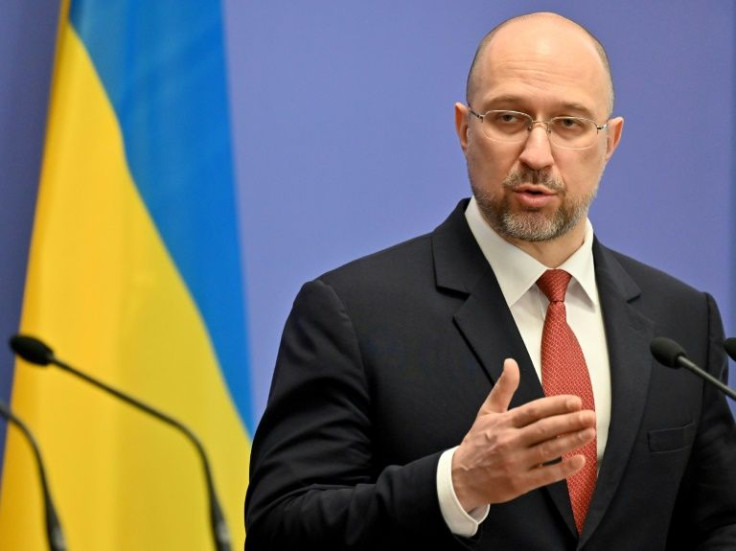Ukrainian Prime Minister Slams Russia Over ‘Terrible Atrocities’ Amid Mariupol Attacks
Ukrainian Prime Minister Denys Shmyhal on Sunday accused Russia of committing “terrible war crimes” in Mariupol since failing to capture Ukraine’s capital of Kyiv.
In an interview with CBS News' “Face the Nation,” Shmyhal said an estimated 100,000 people were left in Mariupol compared to the 430,000 that once populated the city. Those who have remained behind barely have access to heat, food, or water after the Russian attacks.
“So there are terrible atrocities, terrible war crimes on the Mariupol territory,” Shmyhal said following his trip to Washington, D.C., to meet President Joe Biden and top lawmakers.
Since the invasion began in February, the prime minister has claimed that “small children and babies” in Mariupol have died of dehydration.
The day before Orthodox Easter, Russia attacked the region, including the city of Odesa, which left a 3-month-old baby and at least five other people dead, according to Ukrainian officials.
While Shmyhal appreciated the aid Ukraine has received from other nations, he revealed the country needs more financial assistance, weapons, and ammunition.
The prime minister believes more sanctions should be placed on Russia and suggested rebuilding Ukraine by using seized Russian assets to finance the project. “All of this should be paid by Russia. Absolutely,” Shmyhal said.
However, rebuilding Ukraine can’t begin until Russia’s invasion ends. Shmyhal said the battle won’t be over until Russia completely withdraws troops from Ukraine.
“We may protect democracy in Europe, on our continent, in the world, but I think that this war should be finished when we clean our territories from Russian occupants,” Shmyhal said.
Ukrainian officials suspect over 20,000 civilians have been killed in Mariupol since Russian President Vladimir Putin ordered soldiers to invade Ukraine.
An estimated 1,000 civilians are sheltering at a steel plant in the only part of Mariupol that remains under Ukrainian control.

© Copyright IBTimes 2024. All rights reserved.






















